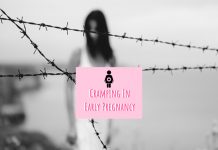Diabetes during pregnancy also known as gestational diabetes is a serious concern among pregnant women. If you want to know everything about this medical condition then read on.
Preexisting diabetes can affect the health of the pregnant woman and her baby. It is not safe to get pregnant with high blood glucose levels.
The body depends on blood sugar for various reasons such as energy and osmolarity. Contraception is essential because managing an unplanned pregnancy with diabetes is difficult.
Every year countless women with diabetes give birth to healthy babies. How? They are able to do so by managing their blood glucose, eating right, and going for regular checkups.
Diabetes can be Type 1 or Type 2 depending upon what is the cause. Generally, adults have a higher risk of getting Type 2 Diabetes.
In Type 1 Diabetes the body does not produce enough insulin. The hormone insulin is responsible for bringing down the level of blood sugar.
Type 2 Diabetes occurs when the cells of the body stop responding to insulin. And there is a third category of gestational diabetes, which is temporary.

Preexisting diabetes and pregnancy
Women with diabetes during pregnancy are prone to a lot of complications. At the same time cases of diabetes while pregnant accounts for 3.3% of live births. Symptoms of diabetes during pregnancy are the same as the regular signs of the disease. Thirst, hunger, frequent urination, hyperglycemia, and low blood sugar during pregnancy are signs of Diabetes.
Is Diabetes During Pregnancy Dangerous?
During diabetes, the normal metabolism of the body to regulate blood sugar suffers a crash down. You can have periods of high sugar levels (hyperglycemia) followed by a sudden drop in sugar levels below normal (hypoglycemia). Both are dangerous for a normal human and even more for the one yet to be born.
Very high blood sugar levels cause developmental defects, neural problems, and larger babies. Risks of C section are higher when you are a diabetic patient. Contrasting to this condition low blood sugar or a sudden drop in blood glucose can lead to fainting. Unconsciousness while pregnant can lead to injuries, miscarriage, and further complications.
Is it hard for diabetics to get pregnant?
Soaring sugar levels interfere with a healthy pregnancy. Blood glucose affects fertility and reduces the chances of conception. One can try to conceive with diabetes after controlling blood glucose levels. It is not hard to get pregnant with diabetes.
Difficulties lie in the path of maintaining a healthy pregnancy and Diabetes. With pregnancy, you can’t control hunger because your energy requirements increase. Managing chronic diabetes and pregnancy together is double trouble.
Once you get to the safe blood glucose levels during pregnancy then risks fall down.
What are normal blood sugar levels during pregnancy?
Energy demand increases during pregnancy and a higher glucose level are acceptable. Normal blood sugar during pregnancy is fasting range 70-95 mg/dL and not more than 140 mg/dL one hour after eating.
Doctors do a glucose tolerance test for pregnant women who are not aware of their diabetes status. Pregnant women drink concentrated sugar syrup with 50 g of sugar. Later their blood glucose levels at intervals of one hour diagnose diabetes during pregnancy.
If the blood glucose is higher than 130 mg/dL you will have to come for a second GTT fasting.
What is considered high blood sugar in pregnancy?
High blood sugar levels are anything above 140-150 mg/dL after one hour from a meal. Exceeding 95 mg/dL in the condition of fasting is also a sign of uncontrolled diabetes while pregnant.
Other than normal blood glucose tests there is another test for diabetic pregnant women. A glycosylated hemoglobin test or HbA1c test tells you the average of plasma glucose levels over three months.
Imagine, you had a very light meal and your blood sugar levels did not show up. Later you had a carb-loaded meal and blood sugar soared way up.
What is a reliable blood sugar test for pregnant women?
The HbA1c test detects an average of three months of blood glucose. You will get the most accurate diagnosis of the current status of your body. When you have HbA1c levels above 48 mmol/mol getting pregnant is not difficult. But when the test results are higher than 86 mmol/mol it is not safe to get pregnant.
Type 1 Diabetes pregnant women also need to test for their ketone levels.
What happens when your blood sugar is too high during pregnancy?
A high blood glucose level in a mother with poor regulation allows it to cross the placenta. Insulin production shoots in your baby to metabolize the excess sugar going in. Growth factors and insulin are not independent in function. When the insulin levels rise beyond normal growth of the baby impairs.
Higher insulin in babies after birth leads to hypoglycemia and poor nutrition management. Absorption of magnesium, calcium, and vitamins also deteriorates due to very high blood sugar.
Contrary to this scenario when the mother has normal blood sugar the baby is able to utilize it without stress. The first 8 weeks of pregnancy are very critical as the development of organs takes place. A mother with high blood glucose levels during the first trimester is at higher risk of having a baby with defects.
How does diabetes affect my pregnancy?
Diabetes in pregnancy is a barrier to normal progression of baby’s growth. Not only for the baby but diabetes poses risk to the mother. Chances of premature labor, c section, and preclampsia, are higher in cases of diabetes and pregnancy.
Ways in which diabetes affects pregnancy:
- Risk of stillbirth, and birth defects in your baby
- Larger baby size may require c section or cause laceration and tears
- Higher possibility of having high blood pressure, preclampsia and poor oxygen supply to baby
- Dehydration, fainting due to sudden drop in blood glucose and or anxiety
- Brain, heart and spine defects in baby eg. Spina Bifida where the spine development does not occur properly
- Miscarriage chances increase when you get pregnant with preexisting diabetes
- Problems in vision, kidney functionality, and eyes
- Early labour and delivery
How Diabetes during pregnancy affects your baby?
Diabetes in pregnancy risks to baby are because of high blood sugar. The increased amount of blood glucose leads to developmental defects. High blood sugar during pregnancy affects on baby includes poor oxygen supply.
Preclampsia in diabetic pregnant women leads to reduction in oxygen reaching the baby. It can stress the baby during labor leading to stillbirth.
The baby’s pancreas overworks due to maternal levels of blood glucose. They need special care after birth for 24 hours. Insulin levels can cause sudden drop in baby’s blood sugar leading to unconsciousness.
Breastfeeding baby with diabetes is not harmful. In fact it reduces the chance of baby getting diabetes in the long run. But if you take insulin shot and feed soon you can add additional insulin to the baby.
The first few hours after birth are critical for the baby. You need to follow the post partum care plan for healthy recovery of both.
Insulin also impairs absorption of calcium and magnesium. Jaundice risks are higher is babies with diabetic mothers. It is yellow coloration of eyes and skin and is serious neonate health complication.
When the baby grows larger than normal the condition is Macrosomia. A large baby can suffer injuries during labor.
How to manage diabetes and pregnancy?
Follow these simple steps to control diabetes for a healthy pregnancy:
1) Exercise and maintain a healthy lifestyle
Keep your sugar levels in control by exercising. Attend childbirth classes and stay healthy. Not only physically but mentally cleanse yourself off anxiety and stress. Try to talk to people who have been through similar situation. You are not alone. Light exercises such as yoga, breathing practice and running while pregnant can help you manage diabetic pregnancy.
2) Have a healthy diet
What should diabetics eat when pregnant? A diabetic during pregnancy needs to take care of her diet even more. Timely small meals, cutting alcohol, caffeine and smoking are some steps. Eating less protein and cholesterol will prevent complications such as protein coming in urine (proteinuria) and high blood pressure.
3) Cut down alcohol and smoking
Drugs and alcohol are not healthy and during pregnancy their side effects are adverse. When you have diabetes your liver functions more than normal. Type 1 Diabetes pregnant women need to control the toxins entering body because liver gets overworked.
4) Go for regular checkups
You must take contraceptives before getting pregnant if you have diabetes. After you decide to get pregnant and are in the state to continue consult your doctor. Tell him about your family history of gestational diabetes, or pregnancy complications. Also get a glucose tolerance test and consultation about already prescribed medicine.
5) Change your medicine with doctor’s advice
You will need to switch from oral insulin to shots. During different stages your requirements will change and so you need to alter your medicine plan. Stay in touch with your doctor all the while.









